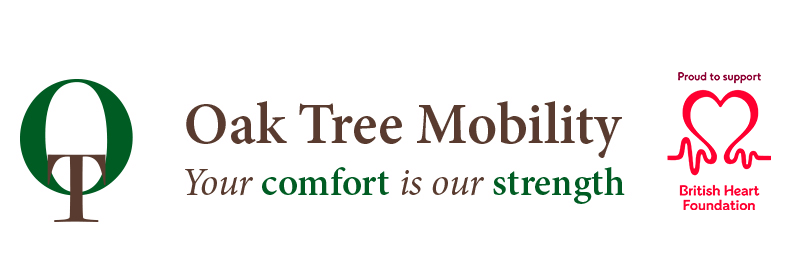Today is World Mental Health Day. This day is dedicated to education, raise awareness and advocacy against the social stigma of mental health. It was first celebrated in 1992 and initiated by the World Federation for Mental Health. It’s observed in over 150 countries.
What is mental health?
Everyone has mental health, whether it’s good or not so good. Some people call mental health ‘emotional health’ or ‘well-being’. It’s just as important as good physical health and it’s everyone’s issue. We all have times when we experience feeling down, stressed, feelings of anxiety or being frightened. Most of the time these feelings pass, but sometimes they develop into more serious long term mental health issues, which could potentially affect anyone.
Different people could be affected by different things, some might bounce back quicker than others from a setback. Mental health also doesn’t stay the same throughout your life. It changes with your circumstances and the different stages of your life.
Unfortunately, even though most of us will struggle with mental health at some point in our lives, there is a stigma attached to mental health problems because people feel uncomfortable to talk about them. Even though it might feel difficult and uncomfortable to talk about your mental health, it’s important to let someone know how you’re feeling.
What are mental health problems?
Mental health problems can range from worries we experience every day to serious long -term conditions. They can range from emotional experiences such as depression, anxiety, panic disorders, social phobia or stress to more serious ‘psychotic’ symptoms which interfere with a person’s perception of reality, such as schizophrenia or bipolar disorder.
Taking care of your mental health
We all need to take care of our mental health and wellbeing whether we have a mental health problem of not. Here are some tips to help improve and maintain your wellbeing…
Our mental state is a measure of how we’re feeling and how well we’re coping with day-to-day life. If you have good mental wellbeing you can…
· Feel confident in yourself and have positive self-esteem.
· Be able to express a range of emotion.
· Build and maintain good relationships with others.
· Feel engaged with the world around you.
· Live and work productively.
· Cope with the stresses of daily life.
· Adapt and cope in times of change and uncertainty.
What is affecting your wellbeing?
Sometimes you might not be aware that something is affecting your mental health until you stop and think about it. There might not be a clear reason to why we feel the way we do – which is frustrating, but thinking about the root of the cause is a good place to start. Common life events that can affect your mental wellbeing including:
· Loss or bereavement.
· Loneliness.
· Relationship problems.
· Issues at work.
· Worry about money.
Other factors might cause you to be more vulnerable to poor mental health like,
· Child abuse, trauma, violence or neglect.
· Social isolation or discrimination.
· Homelessness or poor housing.
· A long-term physical health condition.
· Social disadvantage, poverty or debt.
· Unemployment.
· Caring for a family member or friend.
· Trauma as an adult, military combat, being in a serious accident or violent crime.
Always remember that no matter what the cause, you deserve to feel good and there are steps you can take to improve, maintain your mental wellbeing, deal with stress and symptoms of anxiety.
Build positive relationships

Connecting with people provides a sense of belonging and can help change feelings of loneliness. Other ways include…
· Make time for the people you love and keep in regular contact with them.
· Join a group. Think of something you like and join a group with a shared interest. This can build your confidence and build your support network.
· Talk about it. Opening up to a trusted friend or family member can help to feel supported. Sometimes getting it all out is what’s needed.
· Peer support. If you’re struggling to get things out, talking to someone who’s had a similar experience can help you feel accepted.
· Volunteer. Giving time can be extremely fulfilling and can help you look at things from a different perspective.
Take time for yourself

At times you might need to take time for yourself, this is important to rest and restore your mind and body, this is ideal for stress management.
· Try mindfulness. This is the art of being present and becoming more aware of and managing your thoughts, feelings and surroundings. It can help you enjoy and be aware of the things around you.
· Learn something new. This can boost your confidence and give you a sense of achievement. It doesn’t have to be big at all.
· Do something you enjoy. Whether it’s going for a long walk, baking or going to the cinema. Doing something you love will boost your wellbeing and make you feel good.
· Relaxation techniques. Find something relaxing like listening to music, colouring, having a bath. These things can reduce stress and improve your mental wellbeing.
Look after your mental health
If you’re living with a mental health problem or if you feel anxious, make sure you…
· Tell people what helps, like things that have worked in the past, let people know how they can support you.
· Spot your early warning signs. If you can, try and be aware of how you’re feeling, and spot the signs when you might be feeling unwell so you can get help as soon as possible.
· Keep a mood diary. Keep track of your mood can help discern what is affecting your mental wellbeing and begin to take steps to avoid, change or prepare for negative situations.
· Build your self-esteem.
Looking after your physical health

Looking after your body can help with symptoms of stress. Even small, gradual changes can help have a positive impact, for example…
· Moving. Even doing a small bit of exercise can help because mental and physical health are linked.
· Drugs and alcohol. You may think that this helps boost confidence. But in the long term, it has a negative effect.
· Eating. Explore how what you eat affects your view of yourself.
· Sleeping. Getting too much or too little sleep can both have big impacts on your mental and physical health.
Set yourself a challenge
Focus on ‘small wins’, don’t chase big achievements. Find something you like doing and do it more.
Ask for help
· Think about treatment options. Consider talking to a doctor, local support service or getting counselling.
· Don’t pressure yourself to carry on as normal. Take small steps and ask for help if you’re finding it difficult to cope, whether that’s with the day-to-day practicalities or if you just need to talk to someone.
· Plan for a crisis. When you’re unwell it’s hard to plan what needs to be done. So, when you’re well, make a plan, so it’s easier in a crisis for you and others.
· Stay safe. If things are overwhelming and you’re having suicidal thought or thinking about self-harming you can pick up the phone day or night and talk to the Samaritans, a suicide prevention call line.
A stress-busting exercise to try

If you wanted to have a go at a mindfulness exercise, we’ve written on for you. This exercise aims to make you aware of your breathing and un-tensing your muscles to help you relax and relieve stress. You can do this by yourself, but it does help if you shut your eyes and have a friend or a family member read it out for you so you fully relax.
1. Close your eyes and focus on our breathing. Place your hands on your stomach and notice your hands moving up and down with the rise and fall of your breathing.
2. Now, imagine each of your thoughts as separate trains arriving at a station, however, you remain on the platform, allow each thought to pull away from the station as a new one comes in. Don’t allow yourself to get pulled away by any of the individual thoughts, just notice them for what they are and let them go.
3. Now, imagine your thoughts as clouds in the sky drifting over you, again, don’t allow any individual thought to take your attention, just let them slowly drift in and out of your focus before letting them go.
4. When you focus on each thought, notice the way each different thought makes you feel. Think about the way your body may tense and relax depending on each thought. There is no need to try and solve or think too hard about these thoughts, simply acknowledge the effect they are having on your body as you think about them and let them go.
5. With your eyes still closed, begin to focus on the contact points your body has with your chair and your feet have with the floor, allow your weight to be supported by these things.
6. Still with your eyes closed, focus on your body, starting with your toes and work your way up. When focusing on a body part notice whether there is tension or stress in it, one-by-one relax that body part until your satisfied and move on to the next part. As you work up, remember to breath. Start with your feet, then your legs and your glutes, then up to your abdomen and your chest, go along your shoulders, your arm, your hands and your fingers and then back up again to your neck, your mouth, face and eyes.
7. Stay there for a moment in complete relaxation and when you’re ready to open your eyes and continue with your day.







